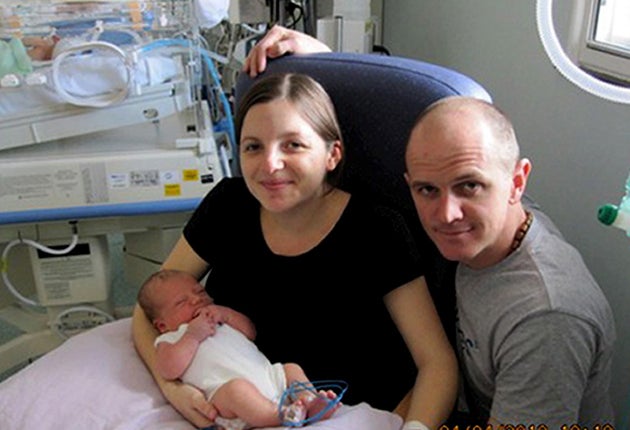Gas saves baby from brain damage
Diving apparatus used to administer xenon to boy starved of oxygen at birth

Your support helps us to tell the story
From reproductive rights to climate change to Big Tech, The Independent is on the ground when the story is developing. Whether it's investigating the financials of Elon Musk's pro-Trump PAC or producing our latest documentary, 'The A Word', which shines a light on the American women fighting for reproductive rights, we know how important it is to parse out the facts from the messaging.
At such a critical moment in US history, we need reporters on the ground. Your donation allows us to keep sending journalists to speak to both sides of the story.
The Independent is trusted by Americans across the entire political spectrum. And unlike many other quality news outlets, we choose not to lock Americans out of our reporting and analysis with paywalls. We believe quality journalism should be available to everyone, paid for by those who can afford it.
Your support makes all the difference.Doctors have used xenon gas to prevent brain damage in a baby who suffered asphyxia at birth for the first time. Riley Joyce received the gas to help him recover after being resuscitated, in what is being claimed as a world first.
Born in Bath, Riley was rushed to St Michael's Hospital, Bristol, where the gas was administered using a specially designed breathing apparatus similar to that used by military divers.
By cooling his brain and delivering the gas, doctors hope to prevent or minimise any damage. It will be months or years before the extent of any damage can be assessed but the early results are encouraging, researchers said.
Professor Marianne Thoresen of the University of Bristol, who developed the technique with Dr John Dingley of Swansea University, said yesterday: "Xenon is a very rare and chemically inert anaesthetic gas found in tiny quantities in the air that we breathe. After seven days, Riley was alert, able to look at his mother's face, hold up his head and begin to take milk."
Riley's parents, Dave and Sarah Joyce, said: "We are delighted that Riley is doing so well and we are extremely grateful that we were given this opportunity. Marianne Thoresen was so passionate about the treatment and we truly believe that she had and still has the best interests of Riley in mind."
Around 1,400 babies a year suffer asphyxia at birth – often because the umbilical cord becomes wound around their neck – and the consequences can be devastating. Hundreds are left permanently disabled and asphyxia is the commonest cause of multimillion-pound lawsuits against the NHS.
Cooling is an established treatment for babies who suffered asphyxia but it only partially reduces disability and does not prevent it in all babies. Scientists have searched for a second treatment that could be added to cooling.
Professor Thoresen said: "In 2002 John Dingley and I realised the potential xenon and cooling might have in combination to further reduce disability. Over the past eight years, we have shown in the laboratory that xenon adds to the protective effect of cooling on the brain; however we faced the challenge of how to deliver this rare and extremely expensive gas to newborn babies."
Because of its rarity xenon gas costs up to £30 a litre and even newborn babies breathe many litres an hour, making it too expensive to use as a treatment. Dr Dingley developed a machine for delivering the gas to babies in such a way that the exhaled air is recirculated after waste products have been removed, so it can be breathed again. The machine works in a similar way to some types of military diving equipment, using less than 200ml of xenon gas – one fifth of a litre per hour. "The lack of side-effects and brain-protecting properties of xenon make it uniquely attractive as a potential treatment to apply with cooling in these babies," Dr Dingley said. The apparatus has been approved for a clinical trial involving 12 babies.
Join our commenting forum
Join thought-provoking conversations, follow other Independent readers and see their replies
Comments